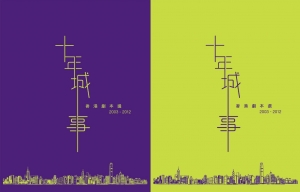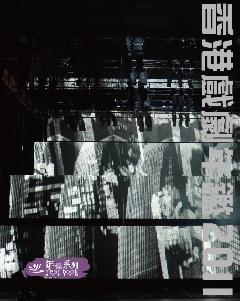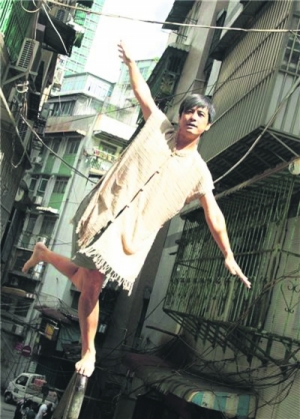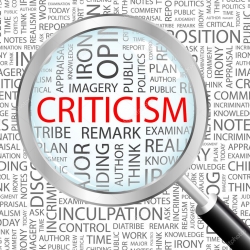2019年10月
This essay attempts to outline my search for new critical models in which we can experience theatre criticism as a collaborative, collective and political practice. Together with my colleagues, I developed various collaborative models focusing on one performance, a theme or a recent phenomenon from the season. I also co-founded two national critical initiatives called “Critical Collective” (Kritik Kolektif) and “Feminist Endeavor” (Feminist Çaba). There are several reasons for doing so. Searching for new critical and collaborative models is firstly, to respond critically to what I see as a lack of dialogue in current politically polarized and anti-democratic atmosphere in Turkey. The second is a reaction to the lack of a detailed and critical approach to theatre practices as parts of socio-political landscape. The third is to understand the crucial role criticism can play in resisting the polarizing mode of everyday politics and the solitary voice of critique.[1] Thereby, I have arrived a new understanding of criticism as a collaborative practice.
Here, the notion of collaboration plays a substantial role. As a theatre critic, I believe that collaboration is the only way to build a renewed and resistant life practice in the face of oppressive politics. It addresses to co-creating the world we live in, to more inclusive works against societal polarization and to resisting the single voice of critique. I argue that such understanding of collaboration is also the core of the word “criticism” in Turkish. In this essay, I will propose a new way of seeing the notion of “criticism” in Turkish case through my search for new critical models as collaborative practices.
Rethinking Criticism
In Turkish case, the translation of the English word “criticism” is “eleştiri” which originally comes from the verb “elemek” meaning “to single out”, “to choose” and “to eliminate”. It also refers to the actions being done with hand and by touching. The “(i)ş” suffix in the middle of the word “eleştiri” transforms a noun, a verb to a reciprocal verb. It gives the meaning of commonality and reciprocality to the word. One of its meanings is “doing”, “work” and “act”. Thus, etymologically belonging to the Turkish reciprocal mode, the notion of criticism (eleştiri) in Turkish seems a reciprocal action or co-creation through close touch. Similarly, Turkish literary critic Nurdan Gürbilek offers that “criticism is a conversation with the works”. She then remarks this conversation “makes unheard voices heard; it is an endeavor to make the work speak about its response to the world”[2]. These contemplations allow me to think the notion of criticism not as a secluded work but rather a co-creation, a plural conversation about artwork. I have arrived a new understanding of theatre criticism as a plural conversation that talks to, through and via the work. This critical and collective endeavor sees theatre criticism as a series of possibilities that allow us not only to understand the artwork with its various aspects, but also our way of seeing us and the world we live in.
This approach brings us to the threshold of a new crucial question about the role of a critic today. What is/can be/should be the critical endeavor of a critic to respond to the world s/he lives in. The question comes from my concern as a critic in a time where the ever-increasingly polarized and anti-democratic atmosphere in Turkey deeply affects theatrical and social life. The control over the media, press, institution and academia has affected the criticism as well as cultural life. Academics have been dismissed from their institutions because of signing the declaration “Academics for Peace”. Critical artists, journalists, intellects and theatre directors have been and are being dismissed from their positions. Some have been and are being arrested because of criticizing the authorities. Indeed, the society has divided into two sharp poles: those who support the politics of the ruling party and who do not. In such a divided, conflicted and frightening environment, the possibility of real dialogue, mutual tolerance, respect for diversity and, not least the possibility for engaged criticism is fundamentally lost.
But on the other hand, current theatre and performance practices in the country present a dynamic and hopeful landscape which questions and wrestles with the ideological and socio-political problems. Not only has there been an increase in the number of new independent groups and playwrights, new venues and independent theatres producing works, but these new practices address current political issues and tell the difficult stories in new and experimental ways. A range of subjects, from women’s issues to transgender persons, language, identity problems related to migration, war and political pressures as well as the feminist and queer dramaturgies, using physical theatre techniques from buffoon to clown can be found in the recent theatre season.[3] Parallel to this, there has been a gradual expansion in the number of critics, new online theatre magazines, websites and blogs focusing on current performances, though this increased theatrical and critical activities on digital media platforms lead to disorganization among critics.
This hope inspiring theatrical diversity in the face of the political turmoil demands a new approach to performance criticism that will differ from the isolated single voice of critique and will bring out new critical forms. I have thus endeavored to gather theatre critics from different age groups, disciplines and institutions to respond critically to what I saw as disorganization among critics and to give voice to women by women critics who have remained silence for so long. This new approach, I believe, will have the potential to create a larger and more inclusive conversation about theatre. It will “make visible as many aspects of the works as possible to incorporate it into the world of meaning that is consisted of ongoing questions and ongoing answers”[4].
Models of Criticism as Collaborative Act
The collaborative critical models I have developed with my colleagues have some things in common. First, they are designed to foster collaboration that the writers can exchange opinions through ongoing questions and possible answers; second, they aim to examine the new plays written and staged by Turkish playwrights/directors and to increase the visibility of new texts and productions.
Examples of critical models include “One Performance Three Views” which brings together the director, the critic and an audience member to jointly write about the same performance, an experimental work or a new theatrical approach to the socio-political concerns. “Inquiry” collects at least three critical essays on a single performance and asks the director to respond to them all; “Inter(re)view” is a mode of criticism in the form of an imagined interview between a critic and an audience member; “Theatre Correspondences: Letter Exchanges on Theatre” discusses a current performance via letters exchanged between two critics; “Feminist Endeavor” is a collaborative criticism group between four women critics and approaches theatre criticism from the lens of feminist criticism.
These models are a meeting point for critics, practitioners and audience members from different backgrounds, generations, social structures and institutions. Most of them give weight to increased women stories on stage by women playwrights and women directors. They are discussed by women critics. For instance, via the form of letter exchanges between me and emeritus theatre professor Zehra İpşiroğlu who is the founder of the Department of Theatre Criticism and Dramaturgy at Istanbul University, “Theatre Correspondences” discusses a range of subjects: a current performance, a recent phenomenon in theatre practice, new trends or tendencies in playwright and staging, relationship between theatre and ongoing debates, and problems in social life. Since the lettering form is based on dialogical form, “Theatre Correspondences” allows us to reveal different aspects of the subject matter. Similarly, “Feminist Endeavor”, which is a collaborative criticism group between four women critics, approaches theatre criticism as a collaborative and political act. It allows for a free exchange of creative and critical thoughts bringing together critics to engage in a conversation about theatre. Taken its name from the idea of feminist perspective on theatre and life, “Feminist Endeavor” gives weight to power of solidarity between women in society and performances. It engages in a particular model of print criticism in conversation form turning around critical questions about a show from the season. It focuses on performances dealing with women’s issues which highlight being a woman and the power of women solidarity in a conflicted, male dominated society.
The models and motivations behind them that are very briefly introduced here[5] propose a new way of experiencing theatre criticism as collective, multiple voices and a collaborative endeavor. They speak to the present situation where we see a lack of dialogue and too many isolated single voices, and have the potential of reactivating the notion of “criticism” as a collective practice. Alongside reflecting the present situation, they reveal their feminist potential by focusing on issues women face under the patriarchy through their form and content.
I hope these critical endeavors will increase with new contributions and together with other critics we can make a substantial change in the current landscape of theatre, politics and criticism.
[1] For a detailed discussion which attempts to theorize new experiments and critical searches in performance criticism, please see my essay: “Critical Endeavor: Experimental Searches in Contemporary Performance Criticism in Turkey”, (to be published in) Platform: Journal of Theatre and Performing Arts, Vol. 13, No. 1, Special Issue: On Criticism, Summer 2019.
[2] Nurdan Gürbilek. Interviewed by Necmiye Alpay. “Eleştiri yapıtla konuşmadır” [Criticism is a conversation with the work], Radikal Kitap Eki, Radikal, 10 August 2007.
[3] For more, please see my essay: “Contrasting Landscape of Theatre in Turkey: Resisting (with) Theatre”, Critical Stages, Vol. 17(2), 2018.
[4] Orhan Koçak. Interviewed by Necmiye Alpay. “Eleştiri zevk alarak okumaktır” [Criticism is a pleasure reading], Radikal Kitap Eki, Radiakl, 24 August 2007.
[5] For a detailed analysis of how the models collaboratively work or are practiced, please see my essay: “Critical Endeavor”.
本網站內一切內容之版權均屬國際演藝評論家協會(香港分會)及原作者所有,未經本會及/或原作者書面同意,不得轉載。










